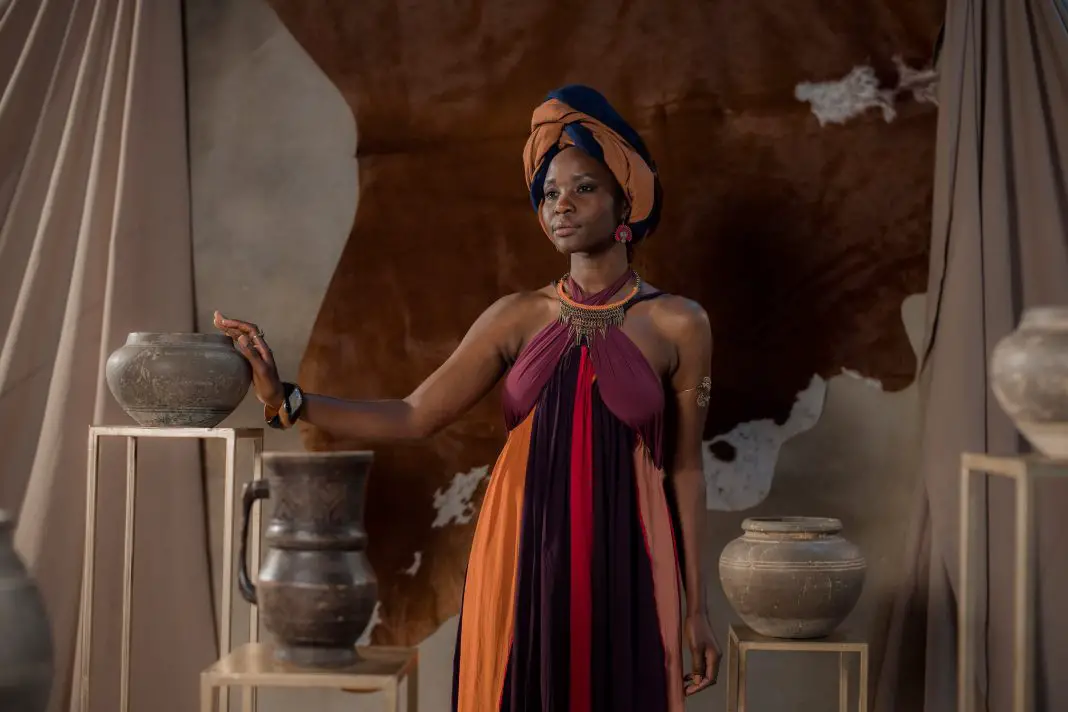One of my favourite Ghanaian feminist poets is definitely Poetra Asantewa.
Through her poetry and writing, I have learned to love my body the way it is and to detox my mind of the shame that society projects onto women who identify as feminists.
In one of her most outstanding poems, she drew light on how women’s role in protests often goes ignored in the general retelling of a nation’s progress.
Titled “Ama”, she spoke on how a woman whose name we shall never know, sliced her body in a bid to encourage fellow Ghanaians at a protest against colonialism.
Poetra Asantewa went on in the poem to ask why women’s voices were often silenced and even more she said that even the gospel may not have been received well if Jesus was a woman.
This is because according to her, Jesus’ charismatic activism would have been even more shunned if it was a woman who was bold enough to revolt against the powers that be.
Now, as a child growing up, I kind of wondered why there were hardly women in Nigeria’s currency notes. Not just that, as I became more intentional as a feminist, whenever people referred to Nigeria as the “fatherland” and spoke on the “founding fathers” of Nigeria, I would often wonder where the women were and if at all women were involved in the development of Nigeria’s story.
These feelings were intensified when I learned of women like Funmilayo Ransome-Kuti, an educationist and independence rights campaigner who led a protest. The ten thousand women strong protest, was done to protest the unfair taxation of women in Egbaland and it led to the dethronement of the Alake. Mrs. Ransome-Kuti was also a key campaigner for Nigeria’s independence and went on trips to England alongside other male independence campaigners.
What is saddening is that her contributions to Nigeria’s story and to the story of Nigerian women, is reduced to the fact that she was the first woman to drive a car.
While that is important and deserves all the praise it receives, why are Nigerian historians allergic to documenting women’s exploits in its full glory. Is it because there is a fear of young women knowing that fighting back and speaking up is not infact alien to African culture?
The Egba Women’s Protest is not the only Nigerian women’s protest that does not see as much amplification as men’s stories of conquest. There is another which is the Aba Women’s Protests.
Done in 1929 to also protest unfair colonial taxation on women, it was spearheaded by an Igbo woman called Nwanyeruwa and saw Igbo, Efik and Ibibio women protest in huge numbers. That protest has been cited as been a catalyst that woke up the anti tax and inevitably the anti colonialist movements in other parts of West Africa asides Nigeria. But how many young children know the names of women like Nwanyeruwa as easily as the names of men like Nnamdi Azikiwe?
Speaking with Chioma, a Nigerian lawyer and writer, she told me that one woman she wishes was more documented is Margaret Ekpo.
In her words: “I know of Margaret Ekpo. You can research more about her. Phenomenal woman. I don’t know why they just mention some things about her when there is so much to know. Even before the Aba Women’s Protests came, madam was already actively involved in politics.”
Chioma went on to say: “I think the reason why they don’t talk about these women is because most of the people engaged in documenting were men. Meanwhile, in some cases, it was women who did the groundwork for certain things. The ones they even talk about now, is because they were very bold and audacious, which some men call pushy. It still happens today. Women will go through hell to set things right and men will come and take all the glory. This thing with men’s pride and their fragile ego is the cause.”
The reality is that young African women cannot move forward if we are not equipped with the stories of the women who came before us.
If the stories of past African women are not amplified, we run the risk of making avoidable mistakes.

Angel Nduka-Nwosu is a writer, journalist and editor. She moonlights occasionally as a podcaster on As Angel Was Sayin’. Catch her on all socials @asangelwassayin.

